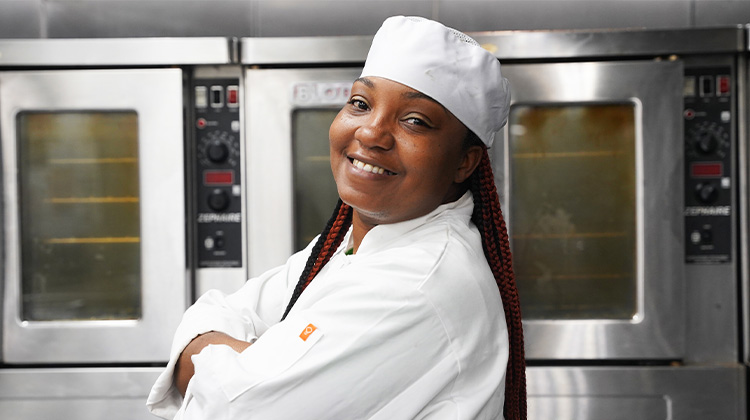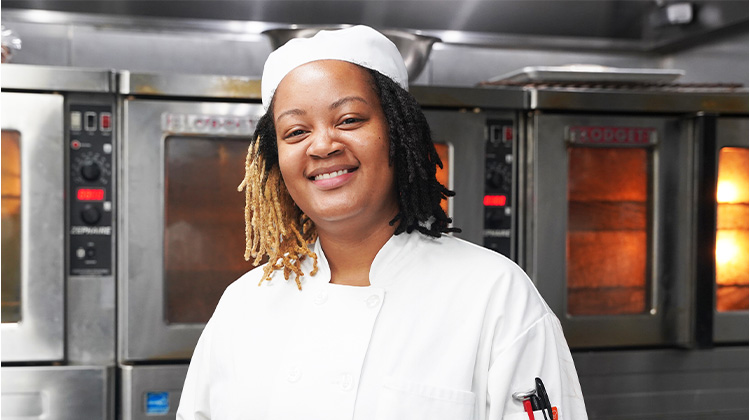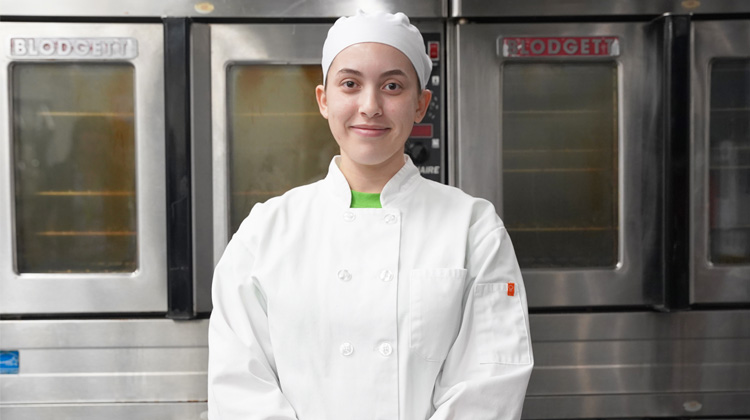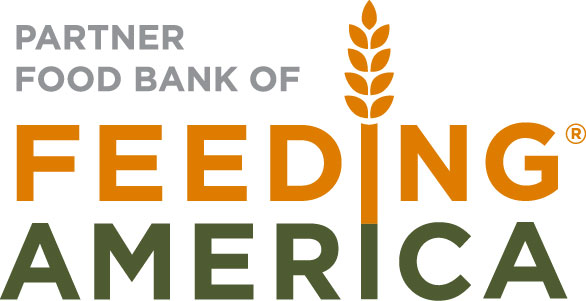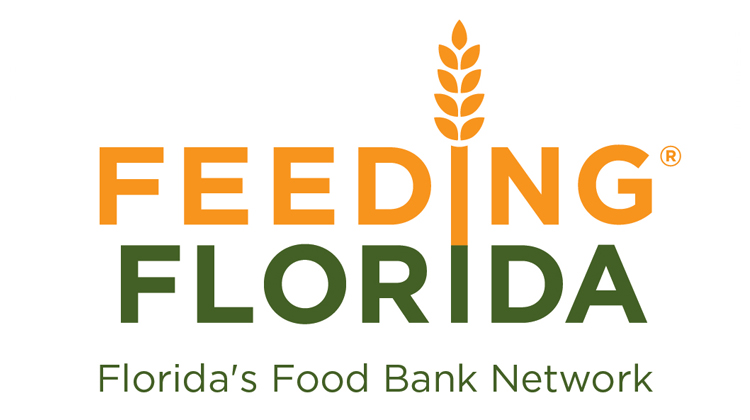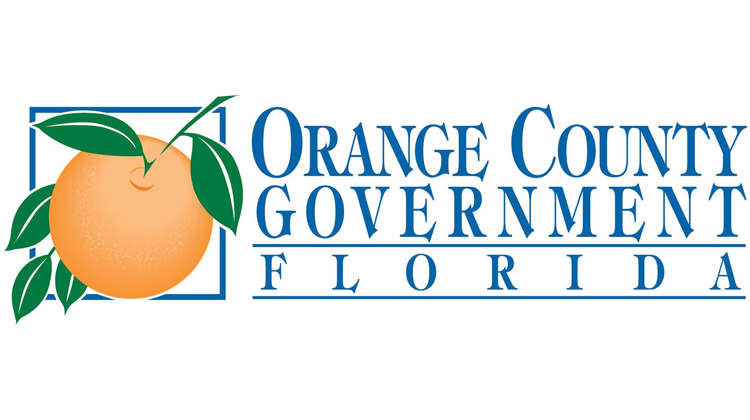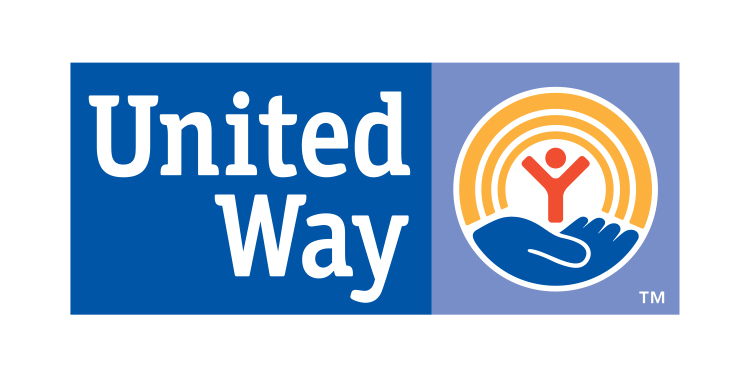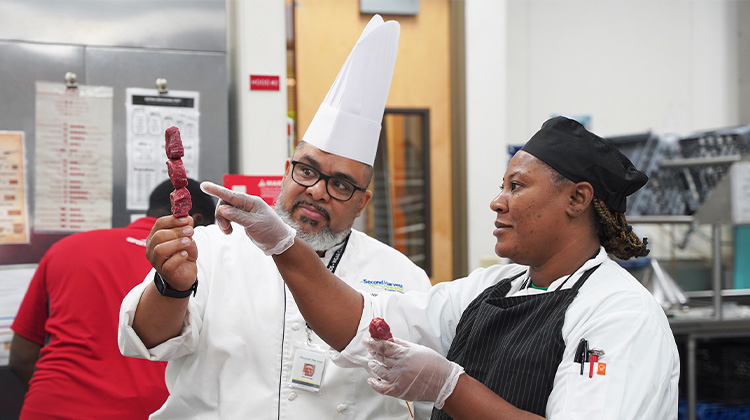
“The passion has to show on the plate. What do you want people to know about you through your food?”
These words, said by program manager Chef Keonna Yearwood, echo through the Culinary Training Program classroom at Second Harvest Food Bank of Central Florida. The 12 students absorb the challenge and get to work.
The 16-week program takes the students through the preparation and serving of several different cuisines, in addition to food and kitchen safety, one day at a time.
Each morning begins with a selection of students arriving early to prepare breakfast for the rest of the class. Breakfast is an opportunity for students to introduce their classmates to their culture through personal recipes. When the rest of the students arrive, around 8:30 a.m., breakfast is served, and the students eat while talking with each other or watching a program like “Master Chef” in the classroom.
Following breakfast, instructors Chef Israel Santiago and Chef Edwin Bodre discuss with the students the culture, flavor, and execution of the breakfast. They offer educated suggestions followed by compliments from the chefs based on what the students prepared.
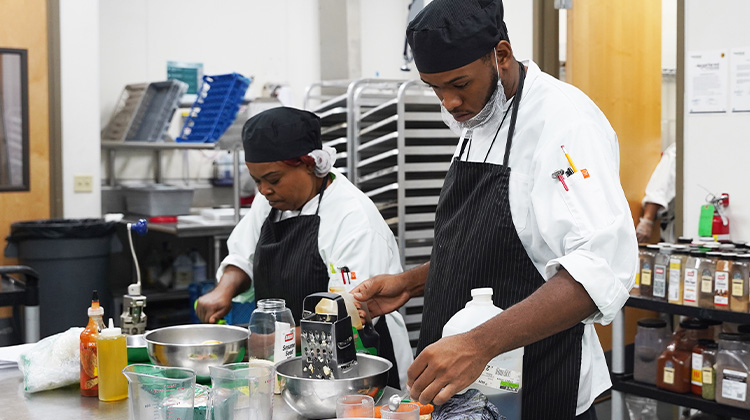
For the next two to three hours, the kitchen comes alive. Knives are sharpened, ingredients are gathered and chopped, automatic mixers are plugged in and turned on, and multiple dialects are spoken simultaneously, but the kitchen jargon, “behind” and “sharp,” is loud and clear. The kitchen ambiance contributes to the chaotic coordination, a silently choreographed dance as the students work with the instructors and each other.
“You see in their face the satisfaction that they’ve received after learning different skills and putting it to work,” says Chef Edwin Bodre, a culinary training program instructor.
For preparing lunch each day, the students work with different groups within their class to prepare themselves for working in a professional kitchen environment. Chef Edwin said his favorite part of the program is seeing the students’ self-confidence grow in the kitchen over the 16 weeks, culminating in Graduation Day. As the students develop their skill set, their presence in the kitchen grows too.
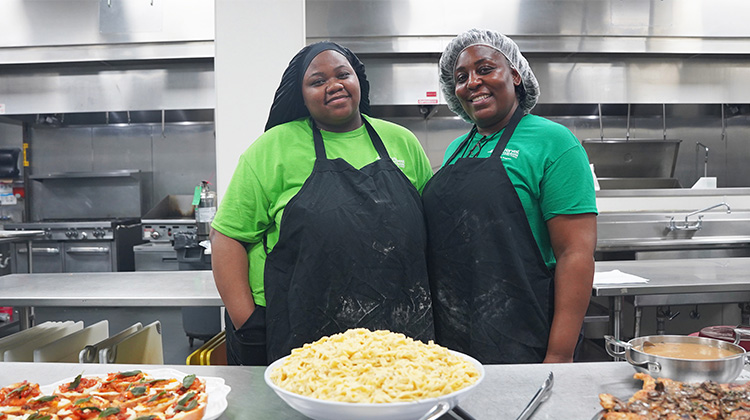
“You see how much they’ve been through since the first day, how much they progress. You see in their face the satisfaction they’ve received after learning different skills and putting them to work. It makes me, them, and their families very proud to see they’re starting a brand-new career, a new life,” Chef Edwin said.
The student groups combine their dishes to create a robust, flavorful lunch that typically includes an entrée, sides, and dessert. After each component is lined up, the students describe the dishes they prepared for the group. This is also when students mention any alterations to the recipe to accommodate dietary restrictions. As the bustling kitchen slows, the students serve their food and break for lunch.
The rest of the day is spent in the classroom, where the students will either listen to a lecture, complete a worksheet, or take a test to assess their technical knowledge of the culinary arts.
Fridays look a little different. Life skills are taught by student services manager Katrina McGee, and occasionally by community partners. Topics vary weekly, from financial literacy to resume writing to interviewing skills. All the lessons are built to equip students with skills to pursue a full-time sustainable career in the food industry.
Sometimes, the program will welcome guest speakers to share their experiences in a specific culinary field, which helps the students develop an idea of where they would like to work towards upon graduation.
At the end of the program, the students will have an Entry Level Culinary Arts Certificate, life skills training, a professional headshot, and the knowledge and experience to navigate and sustain a rewarding career in the culinary field.
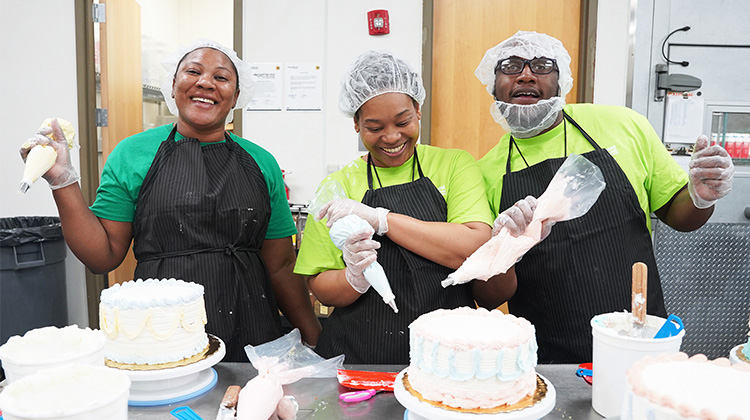
About The Culinary Program
The Second Harvest Culinary Training Program is a 16-week continuing education opportunity offering adults facing barriers to employment the culinary and life skills training needed to pursue a full-time sustainable career in the food industry. More than 450 students have graduated from the program, and many have gone on to have successful careers in the industry.


